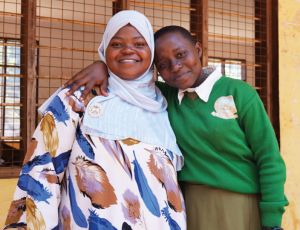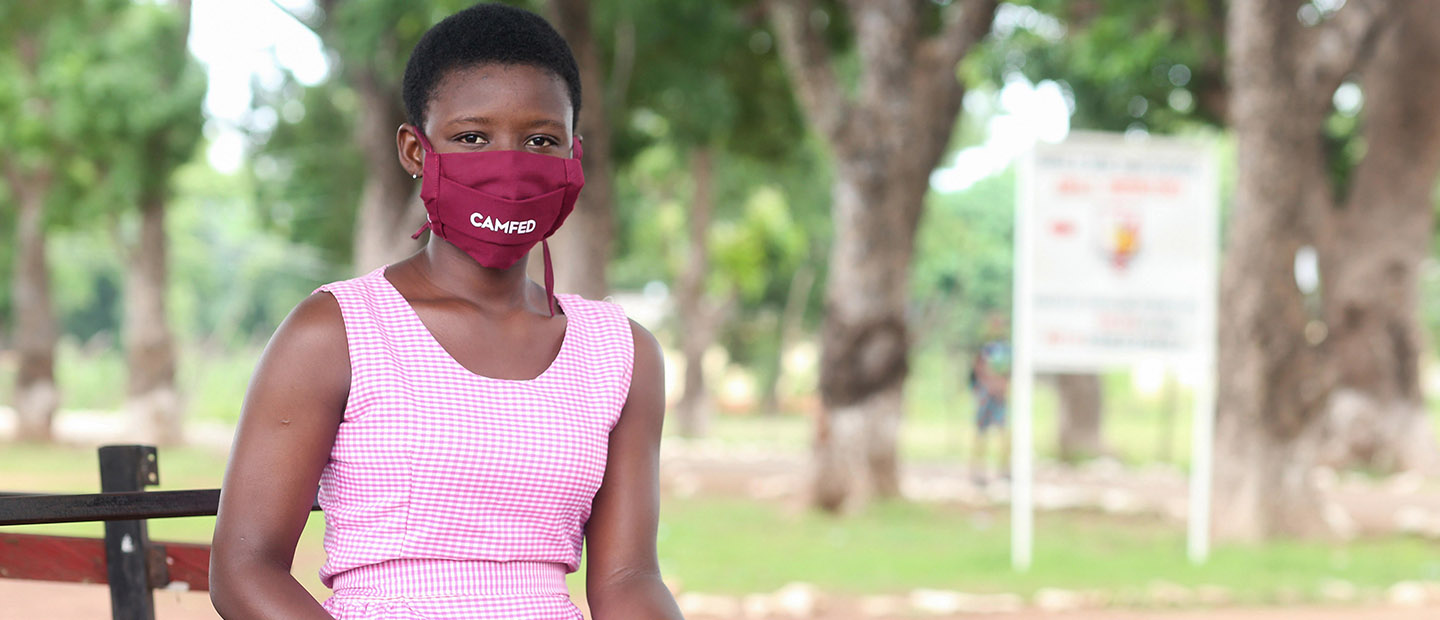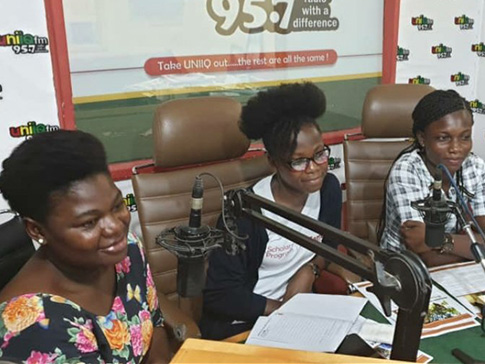
When she thrives, we all thrive
Together this giving season, we can make a difference that ripples outward to benefit everyone.


The distinguished panel comprised representatives of the Ghana Education Service (GES), Innovations for Poverty Action (IPA), a parent, and crucially, two Senior High School students. The panel and a small audience gathered in person, with a much larger cohort joining the session virtually.
In addition to panellists providing their insights and recommendations, the summit also highlighted new research. Presentations given by IPA and CAMFED Ghana illustrated findings from surveys conducted since the COVID-19 crisis began — IPA gathered data from teachers and caregivers, and CAMFED Ghana from Senior High School students — about the pandemic’s impact on learning and the wider education sector.
During this period learning is very challenging with no one to explain things to me… I get stuck whilst learning.
Senior High School student, respondent to the CAMFED Ghana survey
630 girls — from 34 Senior High Schools across nine regions — provided responses to CAMFED Ghana’s survey during the period of school closure. When asked about their needs a significant proportion of students (44%) answered that they lacked sufficient educational materials. On the support required to study at home, 88% pointed to the need for textbooks, and 60% to assistance from a teacher.
The survey also sought to understand other challenges for girls that could impact their education, and even jeopardize their re-enrolment in school. 69% of students reported that their strongest emotion during this period was sadness. Whilst the majority did not feel pressured to enter into early marriage, a notable 14% said they felt very pressured.
CAMFED’s community-led model has proven effective at addressing such challenges, with CAMFED Association members, school communities and local authorities taking additional action for the most marginalized.
Through our partnership with the Mastercard Foundation, CAMFED Ghana was able to recruit young women Learner Facilitators, to strengthen the existing Learner Guide Program, and reach thousands of students with life skills and wellbeing sessions via radio programs and WhatsApp.
CAMFED Teacher Mentors, who are trained in guidance and counselling, have also been utilizing phone communications to offer continued educational and pastoral support.

Young women lead a My Better World life skills and wellbeing session on the radio.
CAMFED, working in collaboration with the Mastercard Foundation and the communities we serve, continues to use research to learn from our clients, in order to deliver an agile response to vulnerable children’s needs, especially in times of crisis.
For all the latest on our community-led activism join us on Instagram, Twitter, and Facebook (@CAMFED).
Margaret Monaghan $10.9
Helen Lea $157
Julia Thompson $100
Joan Goldfeder $211
Bonnie Riggins $10.9
Michael Higgins $13
Cheryl Johnson $5.6
Amy Casciano $10.9
Valerie Turner £40
joyce Davidson $16.1
FRANK BAUDINO $26.6
Markus Rockström €37.2
Chiara Starvaggi Cucuzza €37.2
Bonnie Hollrah $52.9
Karen Thomas $158